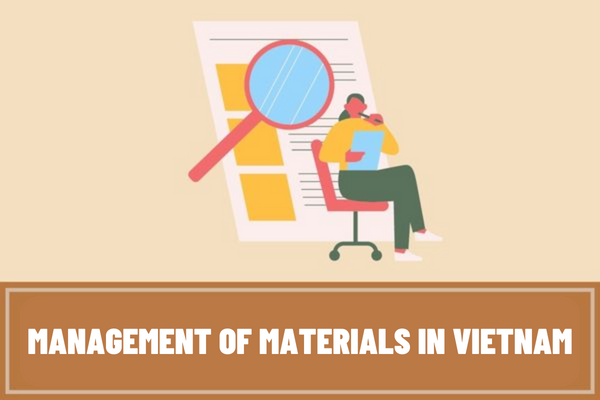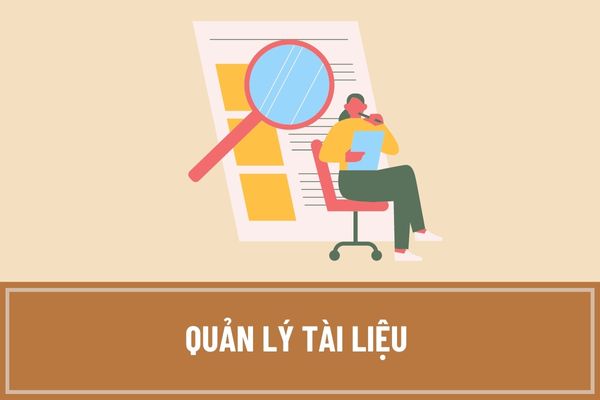Vietnam: What is a material? How to manage materials of individuals, families and clans which are valuable for practical activities and research?
What is material? What do materials include?
Pursuant to the provisions of Clause 2, Article 2 of the 2011 Law on Archives of Vietnam, the definition of material is as follows:
Material means an object containing information formed in the course of operation of an agency, organization or individual.
Materials include documents, projects, design drawings, maps, research works, books, statistical tables; negative and positive films, pictures, microfilms; audio and video tapes and discs; e-documents; literary and art manuscripts; work records, diaries, memoirs, autographs, handwritings; drawn or printed pictures; publications and other objects containing information.
Thus, according to the above provisions, material means an object containing information formed in the course of operation of an agency, organization or individual.
Materials include:
- Documents, projects, design drawings, maps, research works, books, statistical tables;
- Negative and positive films, pictures, microfilms; audio and video tapes and discs;
- E-documents; literary and art manuscripts;
- Work records, diaries, memoirs, autographs, handwritings;
- Drawn or printed pictures; publications and other objects containing information.

Vietnam: What is a material? How to manage materials of individuals, families and clans which are valuable for practical activities and research?
How is valuation of materials in Vietnam carried out?
In Article 16 of the 2011 Law on Archives of Vietnam on the valuation of materials as follows:
Valuation of materials in Vietnam
1. Valuation of materials must ensure the political, historical, comprehensive and general principles.
2. Valuation of materials is performed according to the methods of systemizing and analyzing their functions, information and historical materials.
3. Valuation of materials must be based on the following basic indicators:
a/ Contents of materials;
b/ Position of the agency, organization or individual forming materials;
c/ Meaning of the event, time and place in which materials are formed;
d/ Level of integrity of the archival set;
e/ Form of materials;
f/ Physical conditions of materials.
Thus, according to regulations, the valuation of materials is performed according to the methods of systemizing and analyzing their functions, information and historical materials and must be based on the following basic indicators:
- Contents of materials;
- Position of the agency, organization or individual forming materials;
- Meaning of the event, time and place in which materials are formed;
- Level of integrity of the archival set;
- Form of materials;
- Physical conditions of materials.
Thus, the process of valuation of materials must ensure the political, historical, comprehensive and general principles.
How to manage materials of individuals, families and clans which are valuable for practical activities and research?
Pursuant to the provisions of Article 5 of the 2011 Law on Archives of Vietnam as follows:
Management of materials of individuals, families and clans
1. The following materials of individuals, families and clans (hereinafter referred to as individuals) which are valuable for practical activities and scientific and historical research for the country and society may be registered to belong to the National archival set of Vietnam:
a/ Family annals, clan annals, diplomas, royal conferment, biographical records;
b/ Manuscripts, printed copies with autographs, scientific research works, creative works, correspondences;
c/ Films, pictures; audio and video tapes and discs; e-documents;
d/ Works and articles on individuals;
e/ Publications and materials collected by individuals.
2. Historical archival unit at which materials are registered shall value materials of individuals belonging to the National archival set of Vietnam specified in clause 1 of this Article.
3. Individuals possessing materials have the following rights:
a/ To register their materials at historical archival unit, receive guidance and assistance in preservation techniques and be given conditions to promote values of the materials specified in clause 1 of this Article;
b/ To donate or deposit materials at historical archival unit;
c/ To agree on purchase and sale of materials:
d/ To receive priority in using materials which are donated by them;
dd/ Allow others to use their materials deposited at historical archival unit without harming national security, state interests and rights and legitimate interests of agencies, organizations and individuals;
e/ Be commended by the State in accordance with law.
4. Individuals possesing materials have the following obligations:
a/ Donate or sell only to historical archival unit for materials relating to national security;
b/ Pay preservation fees in accordance with law for materials deposited at historical archival unit, except registered materials.
Thus, the management of valuable materials for practical activities and research of individuals, families and clans is carried out according to the above-mentioned contents.
Individuals possesing materials have the following obligations: Donate or sell only to historical archival unit for materials relating to national security; Pay preservation fees in accordance with law for materials deposited at historical archival unit, except registered materials.
LawNet
